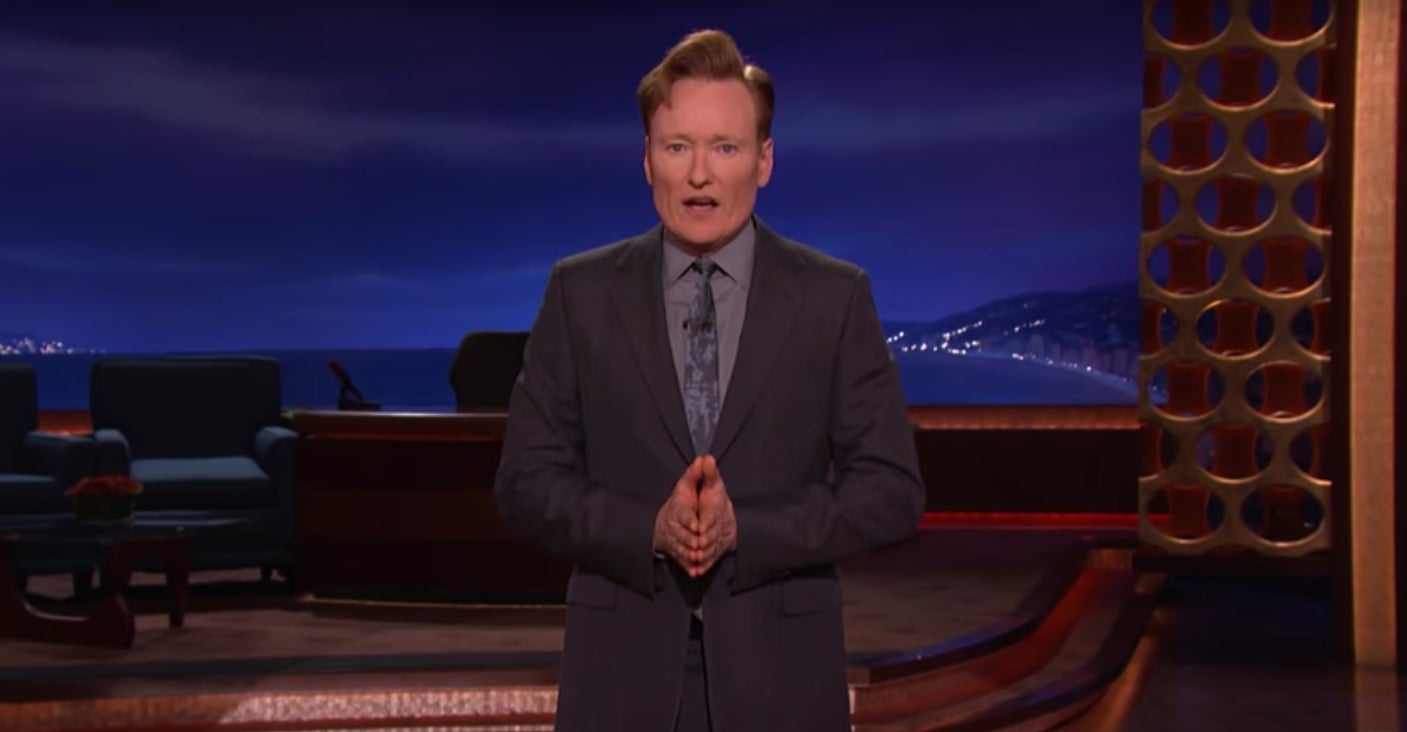Watch: America’s late night comedians struggle to capture a nation’s grief following Orlando
In his first taping of The Daily Show after Sept. 11, 2001, comedian Jon Stewart opened the show by asking his audience if they were okay.


In his first taping of The Daily Show after Sept. 11, 2001, comedian Jon Stewart opened the show by asking his audience if they were okay.
“I’m sorry to do this to you. It’s another entertainment show beginning with an overwrought speech of a shaken host, and television is nothing if not redundant. I apologize for that,” he said. “It’s something that unfortunately we do for ourselves so that we can drain whatever abscess is in our hearts and move on to the business of making you laugh.”
“I wanted to tell you why I grieve,” Stewart said. “But why I don’t despair.”
It might feel strange to look to late-night comedy for cues on how to process tragedy, grapple with outrage, or find a beacon of hope. But Stewart, and many others before and after him, have proven themselves especially thoughtful in these situations, acting, far too often it seems, as proxies for a nation’s grief.
Last night, following the shooting in Orlando, Florida, that left 49 people dead, they had to do that again.
“Our goal, obviously, night after night, is to be funny and silly, if you’re in the mood for that late at night,” Conan O’Brien said during his opening, echoing Stewart’s sentiment 15 years prior. “However, sometimes events are so horrifying and bleak that to come out here and tell jokes—it’s not really possible.”
Conan went on to say how he usually goes out of his way to keep his political opinions to himself, but could do so no longer in the wake of such a horrific tragedy.
“I simply do not understand why anybody in this country is allowed to purchase and own a semi-automatic assault rifle,” he said as the audience cheered. “These are weapons of war and they have no place in civilian life.”
Jimmy Fallon used his monologue to remind viewers of the principles upon which the United States was founded—”the idea that we can stand up and speak our minds and live our lives and not be punished for that, or mocked on the internet, or killed by someone you don’t know.”
“Keep loving each other, keep respecting each other, and keep on dancing,” Fallon said.
Stephen Colbert, meanwhile, seemed exasperated. ”We each ask ourselves what can we possibly say in the face of this horror?” Colbert said. “But then sadly you realize you know what to say. It’s been said too many times before. It’s as if there’s a national script that we have learned. And I think that by accepting the script, we tacitly accept that the script will end the same way every time, with nothing changing.
“Let’s remember that ‘love’ is a verb,” Colbert went on. “To love is to do something.”
Samantha Bee took things a step further with her monologue, expressing anger at years of political indolence. ”After a massacre, the standard operating procedure is that you stand on stage and deliver some well-meaning words about how we will get through this together, how love wins, how love conquers hate, and that is great,” she said. “That is beautiful. But you know what? Fuck it. I am too angry for that. Love does not win unless we start loving each other enough to fix our fucking problems.
“[Omar Mateen] beat his ex-wife,” she continued. “He’d been reported multiple times to his employer as ‘homophobic’ and ‘unhinged,’ and the FBI had twice questioned him for ties to terrorism. But none of these things disqualified him from legally buying a gun that shoots 45 rounds a minute—not even his terrible mirror selfies. I think we can all agree that if you don’t have one friend to hold the phone for you, your lone-wolf ass doesn’t get a gun.”
Other comedians who addressed the tragedy were Seth Meyers, John Oliver, Trevor Noah, and Larry Wilmore.